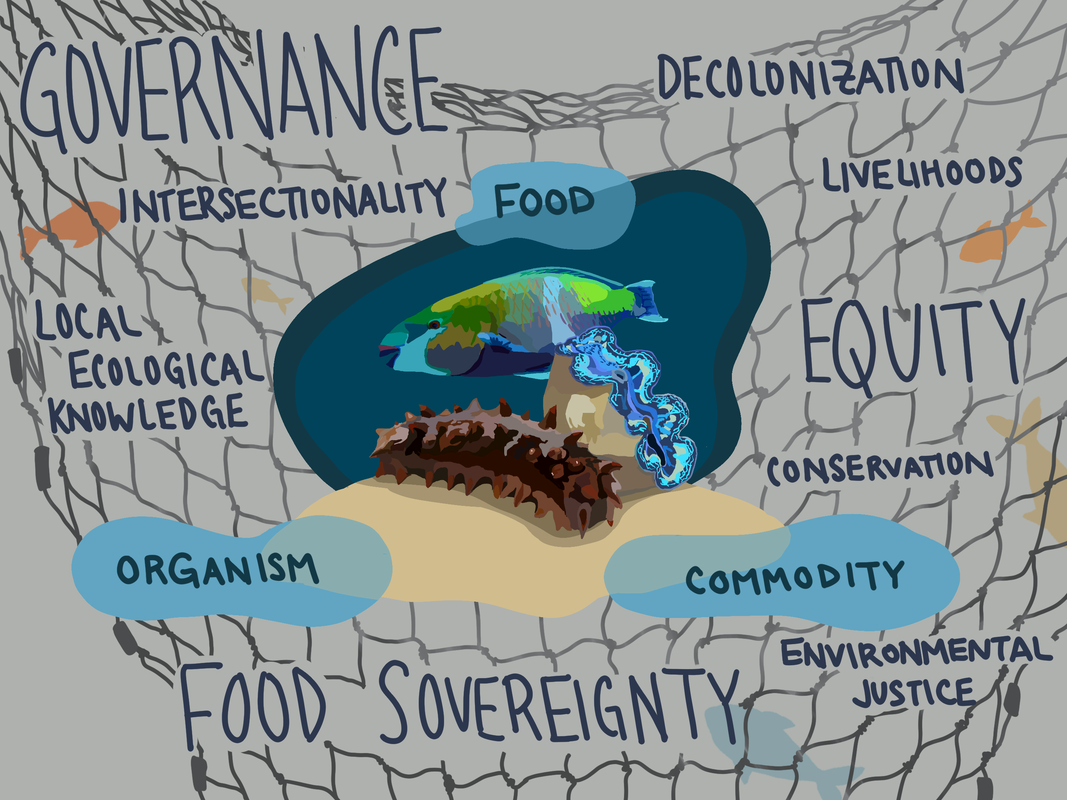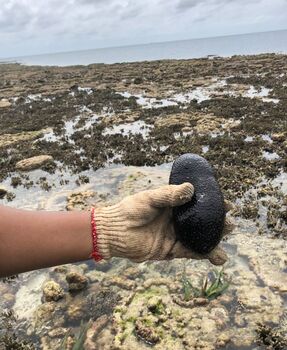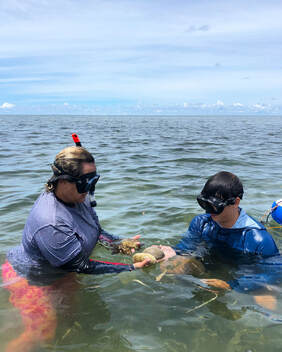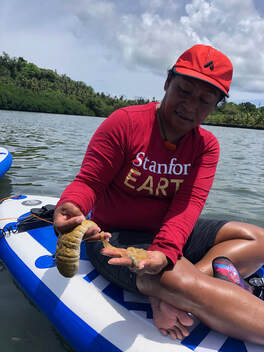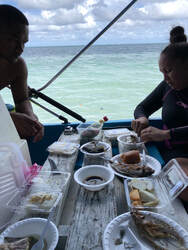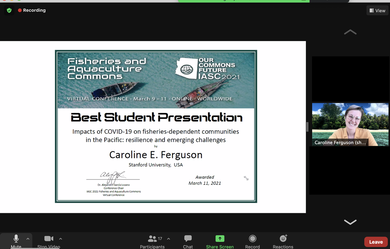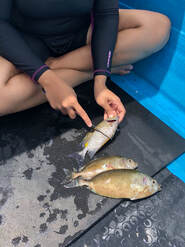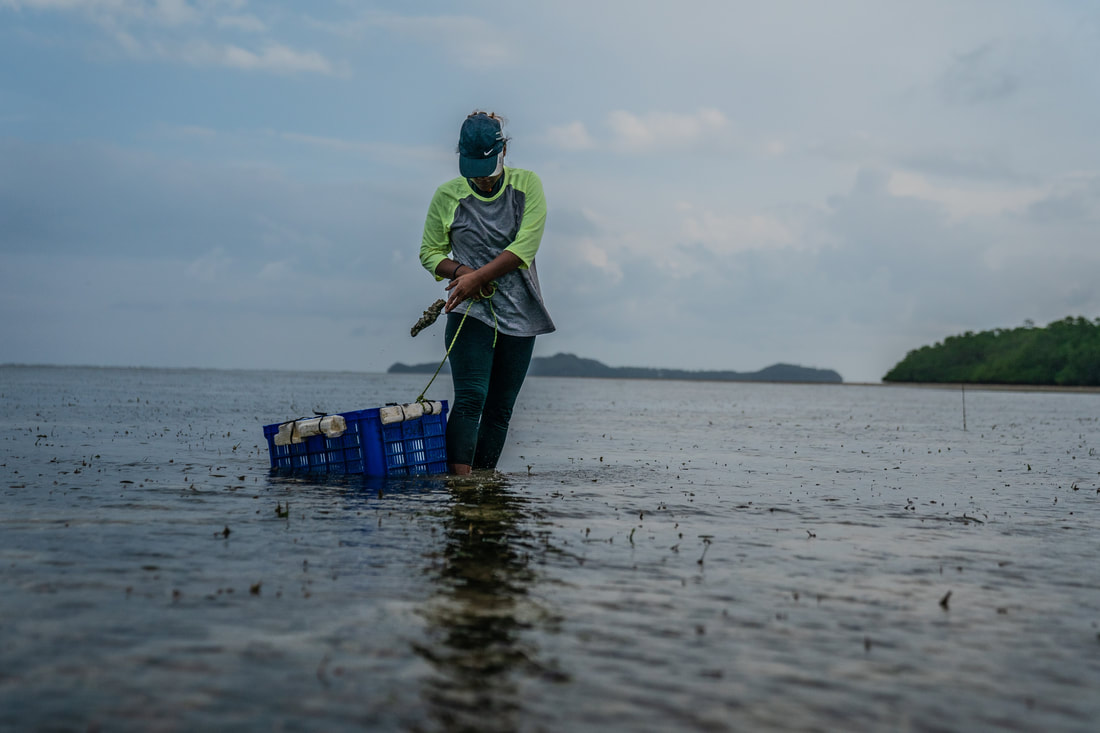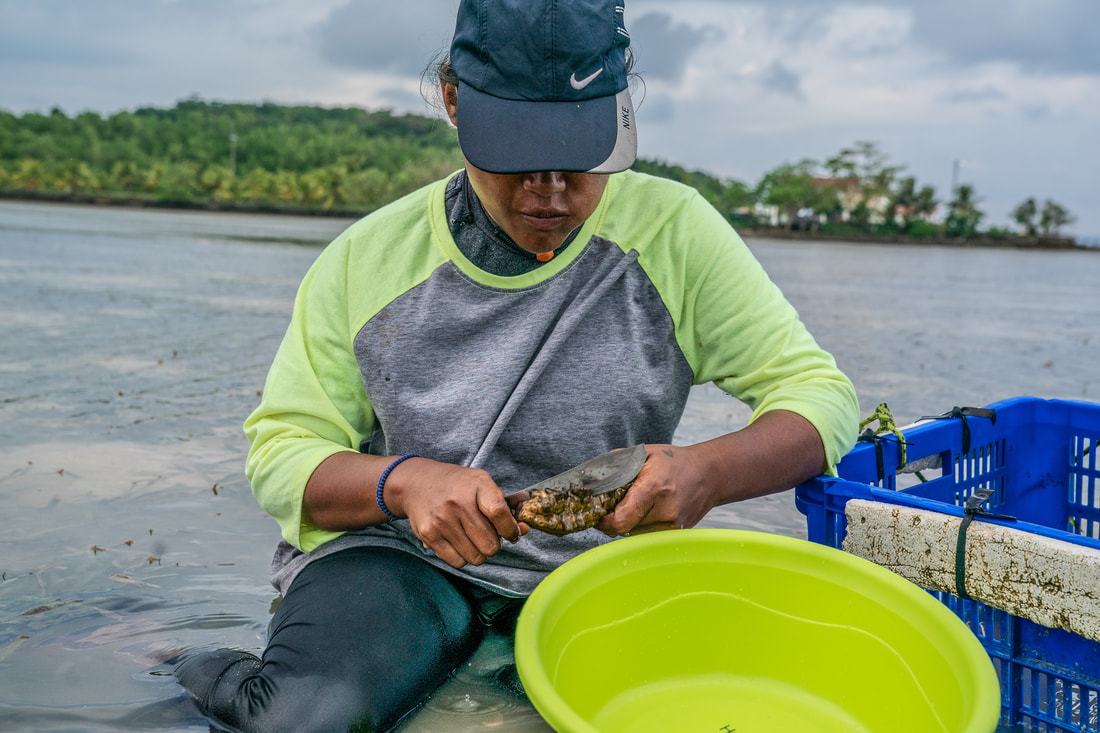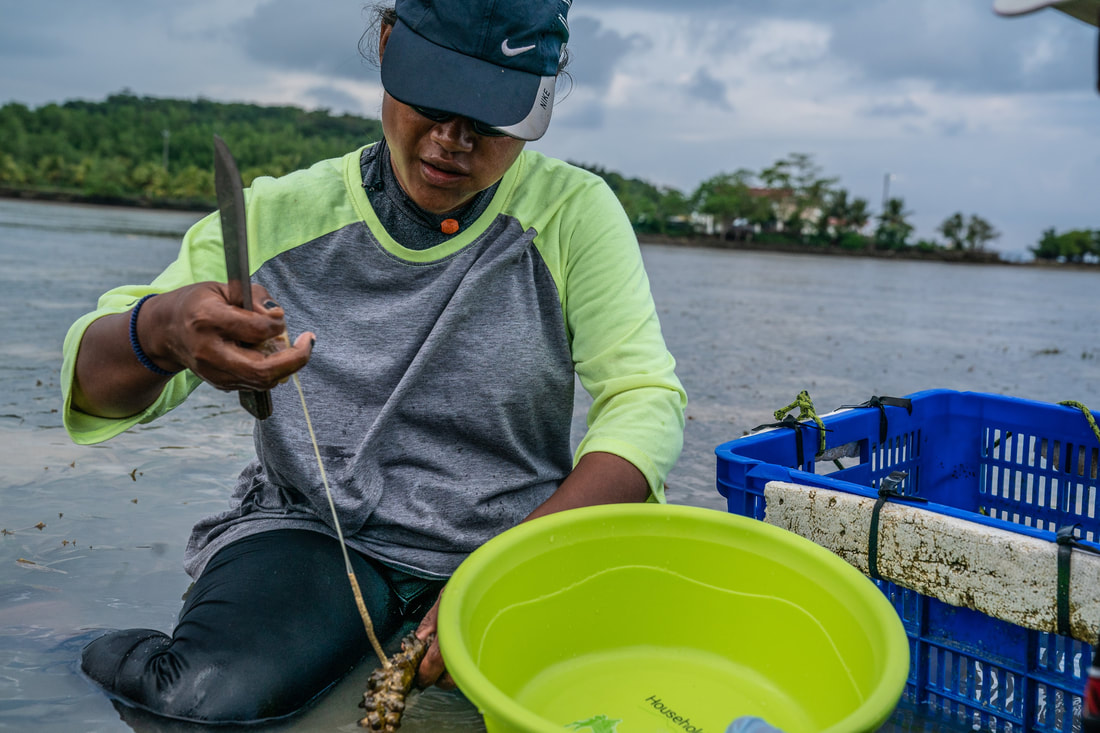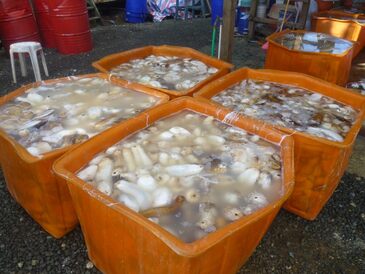Seafood is multifaceted. It holds different meanings for different people. For at least 492 million people worldwide, seafood is food. It provides calories, proteins, micronutrients, and so much more - because food is connected with culture and identity. Seafood is also a commodity, one of the most highly traded food commodities in the world. Seafoods like shark fins, dried sea cucumbers, and tuna fetch astronomical prices on international markets, and are usually harvested from so-called "small island developing states". Finally, seafood is an organism. It is predator and prey in an ecosystem and must be managed as such. Many fisheries are overexploited and also face other environmental threats, including warming waters and point-source pollution. Protected areas, sustainability certification schemes, restoration aquaculture, and the revival of Indigenous governance systems have all emerged as different strategies for addressing this problem, each with their own opportunities and challenges.
My research explores the intersections where these multiple meanings of seafood come into conflict, using seafood as a lens to explore questions of equity, environmental justice, and Indigenous sovereignty. I do so through a decolonizing and community-driven research practice, partnering with fishers, conservationists, natural scientists, policy-makers, and storytellers to find solutions.
My research explores the intersections where these multiple meanings of seafood come into conflict, using seafood as a lens to explore questions of equity, environmental justice, and Indigenous sovereignty. I do so through a decolonizing and community-driven research practice, partnering with fishers, conservationists, natural scientists, policy-makers, and storytellers to find solutions.
Below are a few examples of past research projects.
Intersectionality: Who benefits & why pays from the export of high-value seafood?
Seafood is the world’s most traded food commodity, and the international trade in seafood is promoted as a development strategy in low-income coastal communities across the globe. However, the seafood trade can drive negative social and environmental impacts in fishing communities, and whether the benefits of trade actually reach fishers is a subject of ongoing scholarship. Furthermore, scholars and policymakers have tended to treat fishing communities as homogeneous, assuming that trade policies will impact all members equally. Yet individual community members have different roles, statuses, and entitlements according to their intersecting identities, meaning that different fishers will be differently impacted by the seafood trade. In particular, women occupy different positions than men in seafood value chains and in fishing communities. There are also important within-group differences among men and among women depending on their nationality, marital status, and other identity markers. Through 205 surveys, 54 interviews, and ethnographic field methods conducted in fifteen rural Palauan fishing communities between November 2019 and March 2020, this case study of the sea cucumber trade in Palau brings together theories of gender, intersectionality, and access to answer the question, “How are the harms and benefits of the seafood trade distributed in fishing communities?” In this case, men benefited more than women from the export of sea cucumbers by leveraging access to technology; knowledge; and authority, and the trade depleted resources relied on primarily by women for their food security and livelihoods. An intersectional analysis revealed that marital status and nationality determined access among women, with married women having greater access than unmarried women and immigrant women having greater access than immigrant men, demonstrating the importance of intersectionality as an analytical tool.
Published, Frontiers in Marine Science (2021).
Published, Frontiers in Marine Science (2021).
How have rural Pacific food systems responded to COVID-19?
Resilience of the food system is key to ensuring food security through crisis. The COVID-19 pandemic presents an unprecedented shock that reveals varying levels of resilience of increasingly interconnected food systems across the globe. We contribute to the ongoing debate about whether increased connectivity reduces or enhances resilience in the context of rural Pacific food systems, while examining how communities have adapted to the global shocks associated with the pandemic to ensure food security. We conducted a rapid assessment of 609 interviews across 199 coastal villages from May to October 2020 in Federated States of Micronesia, Fiji, Palau, Papua New Guinea, Solomon Islands, Tonga, and Tuvalu to understand community-level impacts and adaptations during the first months of the COVID-19 crisis. We find that local food production practices and food sharing conferred resilience, and that imported foods can both aid and inhibit resilience. Communities in countries more reliant on imports were almost twice as likely to be food insecure compared to those least reliant. Yet, in places dealing with a concurrent cyclone, local food systems were too impaired, and imported foods proved critical. Our findings suggest that policy in the Pacific should bolster sustainable local food production and practices. Pacific states should avoid becoming overly reliant on food imports, while having measures in place to support food security after disasters, supplementing locally produced and preserved foods with imported foods when necessary. Developing policies that promote resilient food systems can help prepare communities for future shocks, including those anticipated with climate change.
Published, Marine Policy (2022).
Published, Marine Policy (2022).
How does commodification impact cultural heritage?
Intangible cultural heritage is inextricably tied to tangible natural heritage in coastal communities, so the degradation of marine resources directly threatens cultural practice. Meanwhile, shifting incentives and lifestyles under the capitalist political economy have alienated people from resources and created incentives for overexploitation. We explore the threat commodification poses to natural and cultural heritage through a case study of sea cucumber gleaning in Palau. We show that gleaning is a critical site for the intergenerational transfer of Palauan ecological knowledge and values that underpin successful ocean management, and that commodification of gleaned resources has undermined gleaning as a ‘classroom.’ If these trends continue, a vital space for the transmission of cultural and natural heritage in Palau will be lost, threatening local management practices. This has alarmed traditional leaders and stimulated gleaners to act. Drawing upon qualitative and quantitative data over eight months of field research between March 2018 and April 2021, we conclude that heritage is a critical lens for examining the cultural impacts of resource degradation in coastal communities across the globe.
In press, Across the Shore: Integrating Perspectives on Heritage. Springer Science + Business Media: ‘When the Land Meets the Sea’.
In press, Across the Shore: Integrating Perspectives on Heritage. Springer Science + Business Media: ‘When the Land Meets the Sea’.
Is the 'tragedy of the commodity' inevitable?
The extraction and export of high-value seafood products leads to a predictable pattern of social disruption and serial depletion in coastal communities across the globe. The sea cucumber trade epitomizes many of the social and environmental challenges encountered by local resource users and managers at the commodity frontier. These encounters often lead to resource degradation or collapse, after which exporting companies move on to the next frontier, in a pattern described as ‘the tragedy of the commodity’. Yet local resistance presents an alternative pathway forward. We examine three exploratory case studies in which, despite the overwhelming short-term financial incentives to allow these companies to export high-value seafood products, communities resisted. In doing so, they asserted Indigenous self-determination and averted resource collapse. We examine cases of resistance to the high-value sea cucumber trade from Palau, Pohnpei, and Yap. These cases provide insights into why and how communities resist and challenge the narrative of poor fishers as vulnerable and disempowered. These cases demonstrate that the tragedy of the commodity is not inevitable, that motivations for resisting are non-economic, and that traditional and elected leaders, civil society organizations, youth, and scientists all have roles to play in preserving marine resources for future generations.
Published, Global Environmental Change (2022).
Published, Global Environmental Change (2022).
